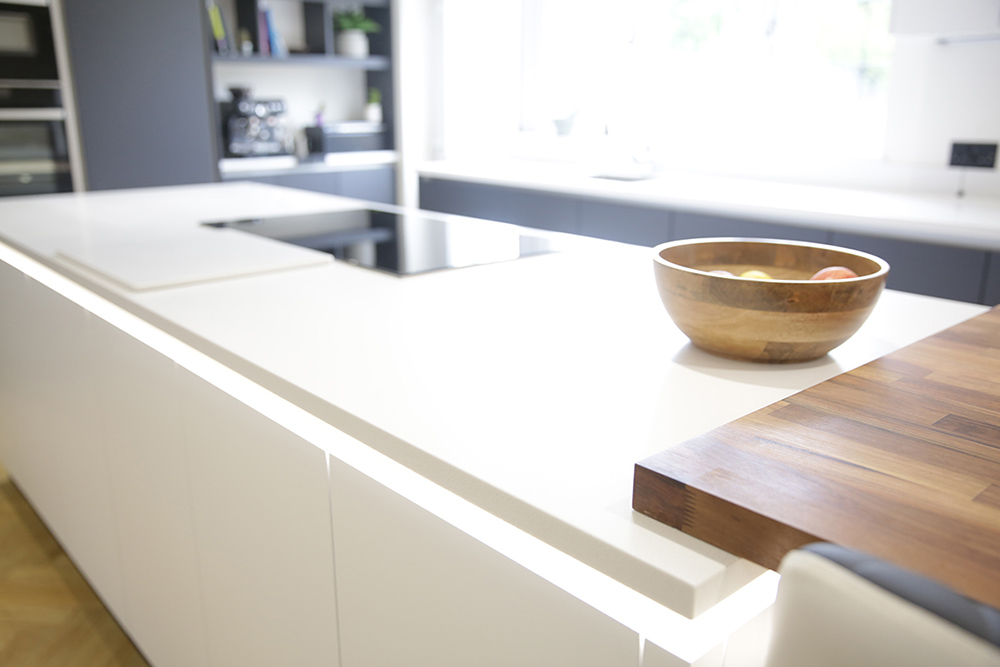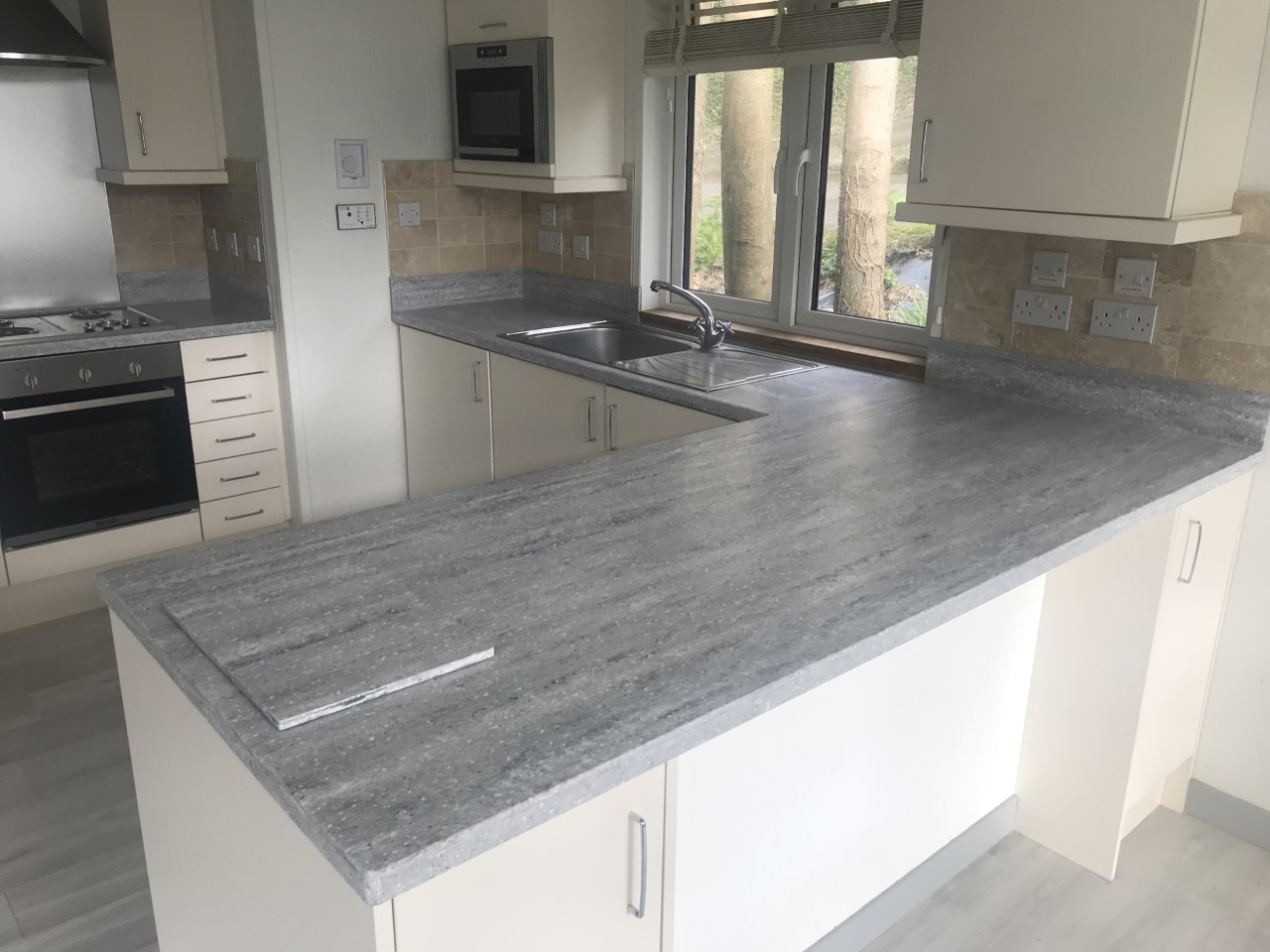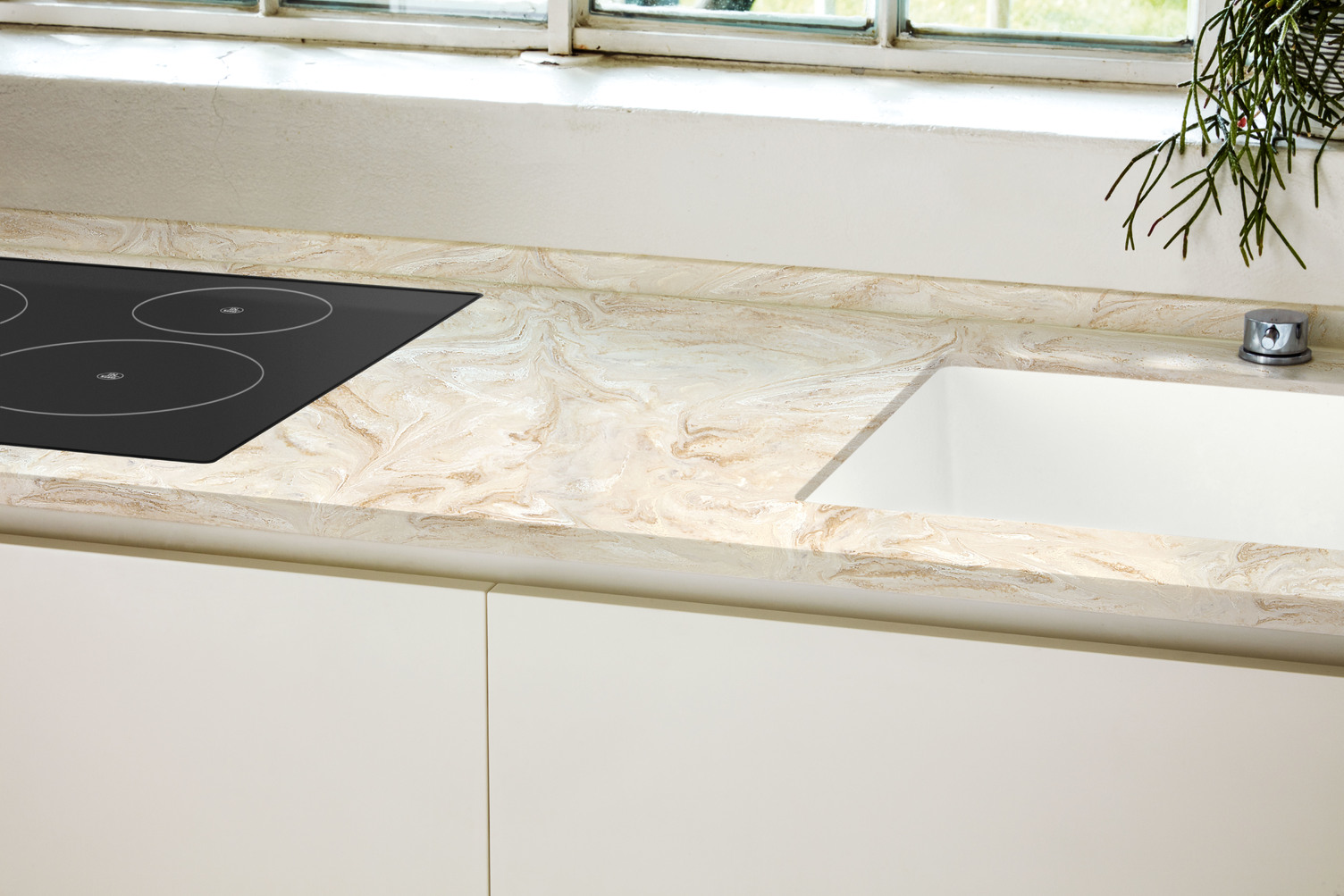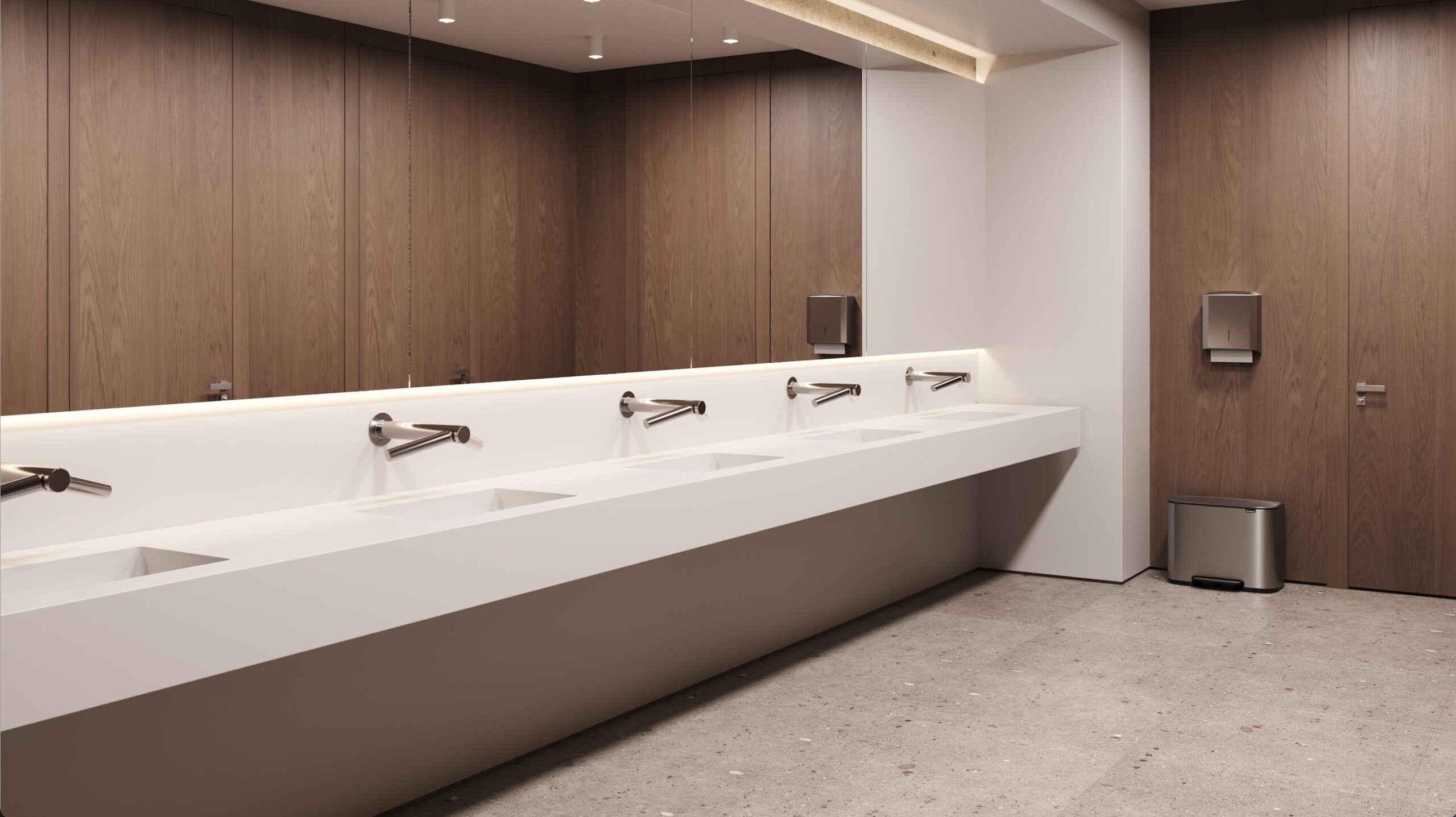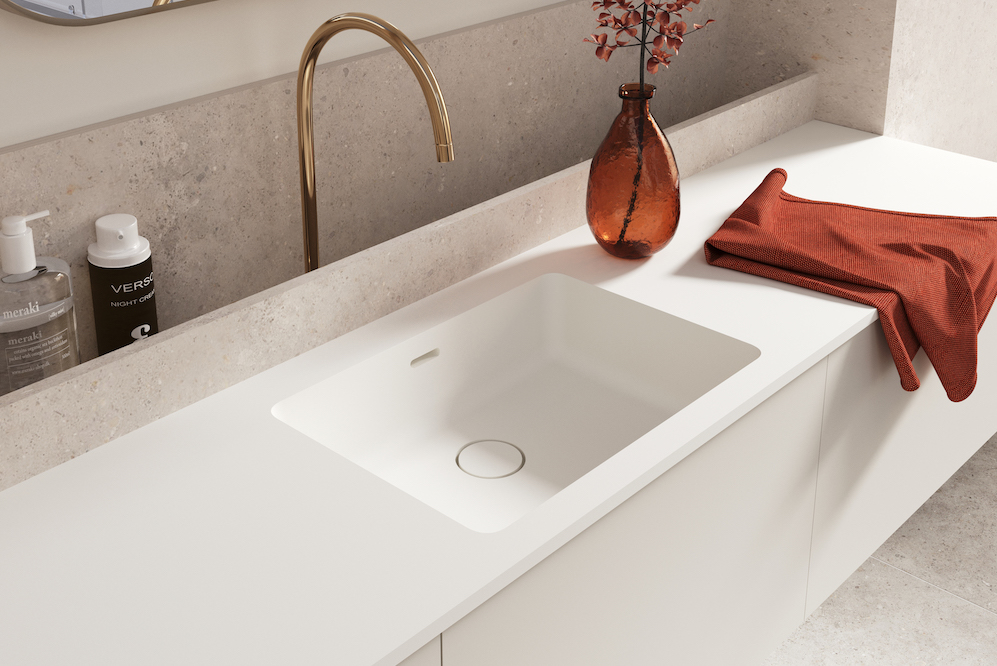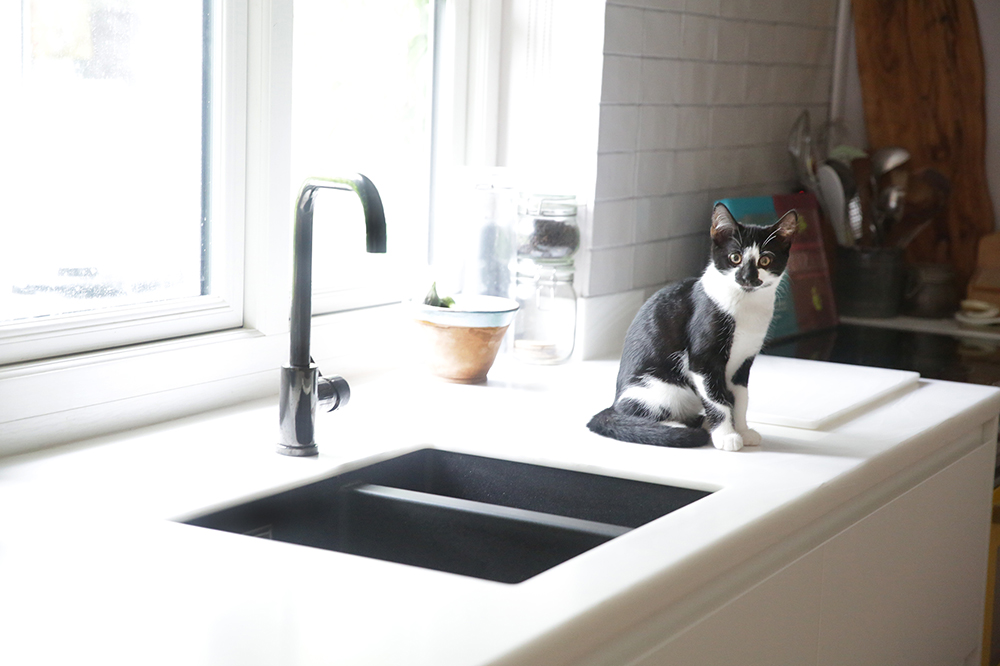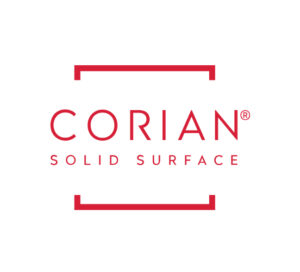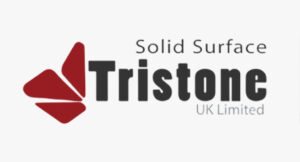why choose solid surface, benefits of solid surface, compare solid surface with granite, corian in healthcare, hygienic worktops, worktops in hospitals, worktops for healthcare, healthcare worktops, hospital surface options, hospital desks, healthcare desks, healthcare reception desks, hospital reception surfaces, corian in hospitals, corian desk, corian in cantine, corian in hospitality, compare solid surface with granite
Why Use Solid Surface?
16 Reasons Soild Surface works best.
Seamless Appearance
- Non-silica-based solid surface materials can be joined together without visible seams, creating a smooth, continuous surface. This is ideal for countertops, as it eliminates gaps and dirt traps between sections.
Easy to Clean and Maintain
- The non-porous nature of non-silica-based solid surface materials makes them resistant to bacteria, mold, and mildew, which is a major benefit for hygiene-sensitive environments.
- Cleaning is simple with just soap and water, and most stains can be easily wiped away with a mild cleaner.
Repairability
- Non-silica-based solid surface materials are unique in that they can be sanded and buffed to remove scratches or small imperfections. This allows homeowners to keep the surface looking fresh over time.
Versatility in Design
- Available in a variety of colors, patterns, and textures, non-silica-based solid surface materials allow for custom designs to suit different styles.
- These materials can also be molded into various shapes, enabling creative and unique designs that may be difficult to achieve with other countertop materials.
Non-Toxic and Environmentally Friendly
- Non-silica-based solid surface materials are made from natural minerals, resins, and other sustainable ingredients, making them non-toxic and safer for both manufacturers and consumers.
- These materials are generally free from harmful silica dust, which can be hazardous to workers during fabrication, improving safety compared to traditional silica-based surfaces.
Heat and UV Resistance
- Non-silica-based solid surface materials have some heat resistance, though direct exposure to very hot items, such as pots or pans, may cause surface damage. It’s best to use trivets or hot pads to protect the surface.
- These materials are resistant to fading from UV exposure, making them a great choice for areas with high levels of sunlight.
Consistency of Color and Pattern
- Unlike natural stone, non-silica-based solid surface offers consistent color and pattern throughout the material, which can be a benefit for those seeking a uniform look across larger surfaces.
Integrated Sinks and Accessories
- Non-silica-based solid surface materials allow for the seamless integration of sinks, backsplashes, and other design elements, with no visible seams or joints to trap dirt and water.
- Custom accessories like drainage grooves, integrated soap holders, or even lighting can be incorporated directly into the surface for a more cohesive design.
Hygienic Surface
- As a non-porous material, non-silica-based solid surface does not absorb liquids, making it resistant to mold and bacteria growth. This makes it an excellent choice for environments where hygiene is important, such as kitchens, bathrooms, and medical facilities.
Low Maintenance Cost
- Non-silica-based solid surface materials do not require regular resealing, polishing, or specialised care. While a professional polish can be done periodically, they are easy to maintain with basic cleaning at home.
Sustainability
- Many non-silica-based solid surface materials are made using eco-friendly manufacturing processes, including recycled content and materials that are easier to dispose of or recycle at the end of their lifespan.
- This makes them an ideal choice for environmentally-conscious consumers who want to reduce their carbon footprint.
Fire Resistance
- Non-silica-based solid surface materials are generally fire-resistant to a certain extent, though it’s still recommended to avoid direct contact with open flames. These materials are designed to withstand heat without easily catching fire.
Value and Longevity
- Although non-silica-based solid surface materials may be more expensive than laminate or some other materials, their durability and long-lasting performance make them a worthwhile investment. These surfaces can last for decades with proper care and maintenance.
Resale Value
- Due to their high-end appearance, durability, and low maintenance needs, homes with non-silica-based solid surface countertops may see an increase in resale value compared to those with cheaper materials.
Safer for Fabricators
- Non-silica-based solid surface materials are safer to work with than traditional silica-based options, as they do not produce harmful silica dust during cutting, sanding, or shaping. This reduces the risk of respiratory issues for fabricators and installers.
Low VOC Emissions
- Many non-silica-based solid surface materials have low or zero volatile organic compound (VOC) emissions, which can help improve indoor air quality, making them a good choice for homes, schools, and commercial spaces.

